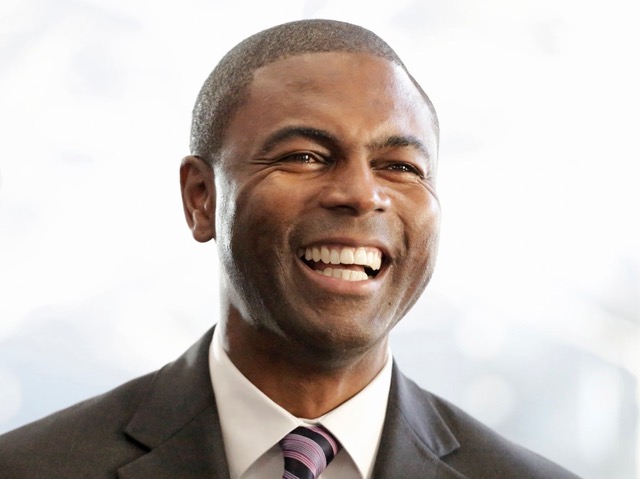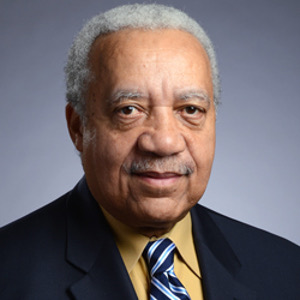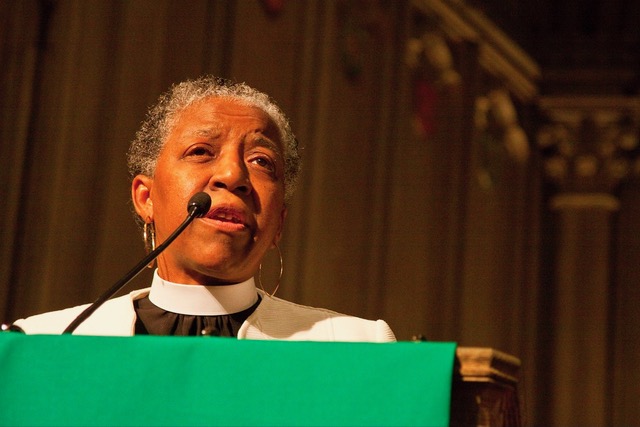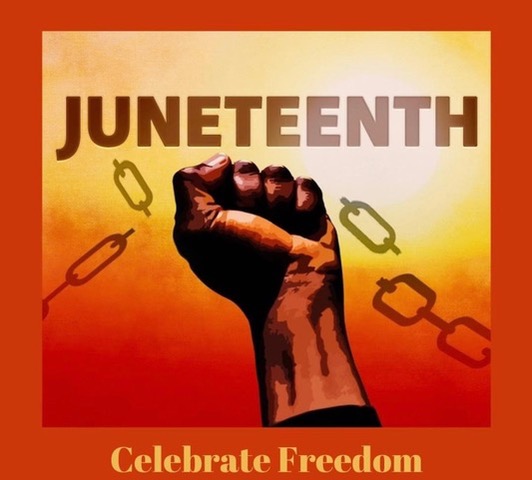For the first time in the history of America, the idea of celebrating enslaved people being free is here. June 19, 2022, is a federal annual holiday for the first time. The date has been observed in Texas, Virginia, and New Jersey years past. The date is officially “known as Emancipation Day and also called Juneteenth Independence and Freedom Day. “
History of Juneteenth…

“On January 1, 1863, Abraham Lincoln declared the end of slavery with the Emancipation Proclamation, It was an executive order, Proclamation 95. The proclamation read “. . . shall be then, thenceforward, and forever free.”
Two and half years later, and two months after the end of the Civil War, Union troops arrived in Galveston on June 19, 1865, to find that news of the Proclamation had not yet reached Galveston and that people were still being held as enslaved people in Texas.
The leader of the Union Troops, General Gordon Granger, then formally announced the Emancipation from the balcony of the former Confederate Army headquarters.
The reason why the news about the Emancipation took so long to reach Texas is subject to speculation. One theory is that the messenger initially sent with the report had been killed before reaching Texas. A more likely scenario is that the local enslavers simply held onto the information, ignoring the emancipation order.
Although the news of the Emancipation reached towns at different times across the South, there was a collective decision to recognize June 19 as the date of the Emancipation. The Proclamation itself (January 1) wasn’t considered as the people wanted to mark when the new freedom affected the enslaved people’s lives.
The annual commemoration of this date, which became known as Juneteenth, was seen as a stabilizing and motivating presence in the lives of African-Americans in Texas. They despise their newly-acquired freedom still face many uncertainties and challenges.
Celebrations include parades, storytelling, barbecue, and baseball. Strawberry soda pop is the drink of choice, and the building from which General Granger read the Proclamation is now a historic landmark.
While Juneteenth is the oldest known celebration commemorating the ending of slavery in the United States, it wasn’t until 1980 that it was made an official state paid holiday in Texas, by President Joe Biden.
How Do We Celebrate?

So, now that history is so stated and has taken 155 years to become a national holiday, how will we celebrate America’s newest day of recognition? Will we have a televised concert? A festival in each city? A history lesson on a streaming service? A retail sale? Will there be unique T-shirts and other memorabilia? Will there be recognition of the civil rights leaders who have stood for progress and social gains? Will there be a lecture series on Black greatness? Will there be a special drink? Will everyone go to the park and barbecue, as we do for July 4? Will there be a massive parade or picnic? Will we just sing and dance? Will we remember slavery? Will we take a look at Blackness in America? Will we go fishing? Will Black people celebrate one way and whites another? Do we come together for a historical review? Will we go to church? Will there be a gospel fest? Will there be memorable music compositions?
When my mother saw the latest about the holiday, at 100 years young, she asked me,” Hermene, are we now celebrating slavery or are we celebrating freedom?” She said, “don’t start planning a party for slavery.” Her remarks have preoccupied me.

Irmer says, “Juneteenth was celebrated as the day Black people in Texas stopped lying to, the day they became aware that slavery had ended, even though it had become illegal two years earlier. I believe we should treat Juneteenth as a day of awareness, a day to celebrate truth.”

Ford says “the day should be one to highlight the culture we wanted to reflect.”
“Now that our country has made Juneteenth a national holiday, we have recognition of the harms of our country’s original sin against Black people. The Juneteenth holiday should be a day of reflection and action, knowing that our personal freedom as Black people was fought for and won for us by our enslaved ancestors. This realization eliminates any excuses concerning whether we as a nation can overcome personal racism, systematic racism, police brutality, or any other barriers before us. If enslaved Americans can promote the nation’s freedom and free a race of people, we must face our present-day challenges head-on and give ourselves a chance to win, even knowing the difficulties ahead. If enslaved Americans made excuses why they couldn’t overcome the torture of slavery, the story of America would be different.
We come together to celebrate independence from Great Britain as a nation because of how enslaved Americans helped to build a nation that could defeat the immense power of Great Britain. That’s why we all must celebrate July 4 and remember that this national holiday also reminds all of us of the promise of America. Black Americans must celebrate this promise on the 4th of July too, and we all must be reminded of the continuing fight ahead for equality and justice. The blood of our ancestors is our passport to freedom and justice in America – but it is up to us to make no excuses and continue to fight for our freedom like our blood ancestors did, overcoming all barriers and odds. “

Hall says, “we have to tell the story with parades and merchandise. It is a decisive moment in American history. We need an educational something. We need to engage in art, culture, food, and inventory to bridge the generations. We need a documentary of the sort with Hollywood voices like “Roots” brought out of Hollywood. We need 19 days leading into Juneteenth to understand the unknown facts and who made it possible. We need the true story of the date. The question is, what comes out of slavery? Who should be remembered?”

Reed says, “We have to know June 19 is the culmination of a process of Emancipation beginning with 1863, “Watch Night” – December 31, 1863, when Emancipation was announced. The importance of the passage of the 13th Amendment is when the constitution ended legal, constitutional slavery. We should read the 13th Amendment to understand it and affirm the learning to understand what was signed into law.”

Wilson says “Juneteenth was the late notice of freedom. It is not a time for a barbecue. It is a time to recognize the hasting impact of those benefitting from the economic institution of slavery. It is a day to gather to tell the Emancipation of promised land stories. It is a day for parents and grandparents to tell children how people moved from slavery to today. It is a day to talk about the impact of slavery and the wealth gap. It is a day to commemorate the relief of the physicalness of slavery and to reflect on ways to recount our journey to freedom as we move forward to equality. We should be prepared to put forth a Marshall Plan for the United States to discuss the social, economic, moral impact on the vitality of Black America. We should look at the promise of the 40 acres and a mule that didn’t materialize, that left people in decades of poverty who went to freedom with a poverty stamp.”

Adams says, “ I was fully grown before learning about the Juneteenth day in Texas. We should look at where we are and where we need to go. What does the day mean to slavery? We should teach truth history about what slavery meant. Blacks were freed with no holding rights, no severance pay, no back pay. Blacks went into sharecropping with intentional oppression. We continue to fight for liberation, fight for our rights and gains. The pressure diminished Blacks in many ways. And when success was realized, like Black Wall Street in Tulsa, Oklahoma, it was intentionally destroyed. Juneteenth should be a day to rededicate to fight for freedom. – free to make the decision and freedom for opportunities. Adams, says, “we are still waiting for freedom. It must be more than a proclamation, it must be our reality. This is a day of remembrance and reflection. But most of all a time for resolution. For far too long we have been re-fighting the same battles over and over again. Out of our gloomy past we are reminded that for every gan we fight for and achieve, we hae to fight equally as. har to maintain. The irony of the congress uniting to pass a federal Juneteenth Holiday while some are actively engaged in voter suppression is testimony to the contradiction. On this day, June 19, 2022, we affirm that the relevance of Juneteenth is vested in our work for our future. Our determination is to be repaid, restored, and repaired for as a central element of our quest for freedom. They didn’t the word about emancipation late in Galveston, I’m still waiting for freedom in Chicago.”
This is a holiday to ponder. It is a time for America to recreate, rethink, and recognize itself. Think about it. Discuss it in your family, at church, in your club, and in your communities. Juneteenth is not just another holiday to be off work, or to party, or to wear a t-shirt. It’s much more. It’s a day to reimagine Blackness in this country.







